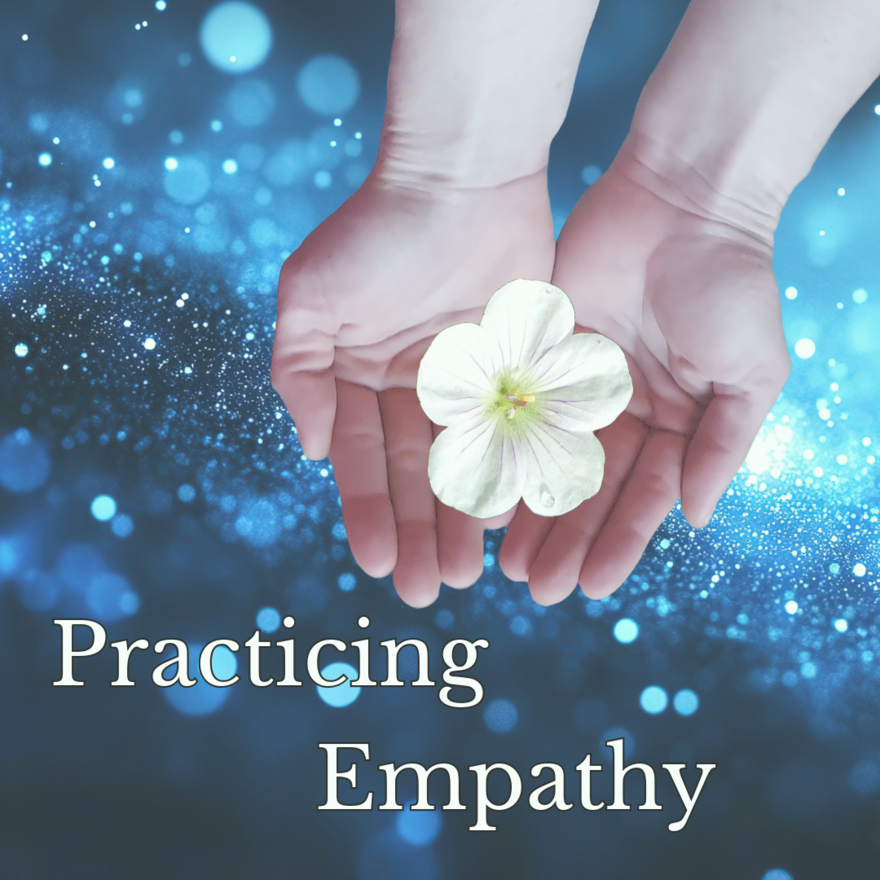
What is empathy?
Merriam-Webster dictionary defines it as the action of understanding, being aware of, being sensitive to, and vicariously experiencing the feelings, thoughts, and experience of another.
How to practice empathy?
There are many offered suggestions for how to practice empathy. This can include identifying your biases, listening to others experiences, monitoring body language, practice mindfulness, engage with curiosity, be humble and ask questions.
It feels rather dry, doesn't it? And it leads us to another question. Will practicing empathy actually allow us to be more empathetic? Does practicing empathy work?
These questions have been coming up for me over the past few weeks. As someone who has been an empath for as long as I can remember, I have not known a time where I couldn't feel empathy. Sure, there are small instances where my empathy for one person (or animal) overrides my empathy for another person. Often, this looks like seeing an abuse animal and feeling some much empathy for the downtrodden that I struggle to find empathy for the abuser. These are often rare and extreme situations, though.
More often, I can walk into a room and almost instantly know how people are feeling. It can be both a general vibe of the whole group, and an individual appreciate for each person's unique feelings. This has never been something I have had to practice. In fact, I have had to work very hard to NOT feel everyone else's emotions all the time. So, why the sudden interest in empathy?
Empathy builds bridges between people of all walks of life. It strengthens communication and allows for stronger community ties. Empathy is the foundation of togetherness and acceptance. Empathy turns our world from win-lose to win-win. When looking to the future, this is more of what I want to see in my life and in the world around me.
As I read through the articles and book on empathy, I started noticing a theme. Even the videos online about empathy are lacking the same thing. All this media defines empathy but none of them gave a plan for how to actually practice empathy. It's all fine and dandy to understand the how-to, but what happens when you have to actually do the how-to parts?
.png)
Practicing empathy should allow you to feel what it will be like to have a vulnerable and open connection with someone who might be radically different than you. Yet, you don't have to have a trial by fire to practice empathy. One of the best ways to practice empathy in the beginning is to practice empathy for yourself.
To start, practice kindness for yourself. Empathy is rooted in kindness, so take a moment to sit quietly in your room. Think of five kind things you can say to yourself to improve the quality of your day. How we treat ourselves is the start of how we treat other people. Taking a moment to be kind to yourself will reframe your mind to be more compassionate overall.
Once you have a calm, kind and compassionate mindset, we can move onto practicing empathy. This of a time that was joyful for you. Since this is your memory, start by revisiting this memory from a feeling perspective. Feel the joy it brought you; the positivity, and the optimism. Think of this joyful memory as if we were sharing the details with a friend for the first time. Remember the little aspects of the memory that brought you joy and happiness. This is the share step of an empathetic practice. Next, we will view this memory as an observer.
Step just outside of your joyful memory and see yourself experiencing the moment. Can you feel the secondhand joy you have from watching the moment unfold. Can you feel the joy from the other people involved or from the world around you during this memory. From an outsiders perspective, can you understand the thoughts, feeling and perspectives you had in the moment? Can you identify what aspects of the moment led you to joy, to happiness, and to positivity?
Empathy is a large and vast practice, so don't worry if this exercise wasn't easy. This is the building blocks to building empathy for other's, and perseverance will result in a greater ability to practice empathy. If this was an easy exercise, the next step would be to practice empathy for yourself with a memory of a small trial. Incrementally working on slightly harder and harder scenarios will ultimately give you the tools to have an intimate conversation with someone who has different perspectives and life experiences than you in a safe, vulnerable and compassionate way. Building these relationships ultimately leads to a sense of community and a more open perspective of the world around us. If the thought of building greater empathy intrigues you, join me for the next step on the process.
Subscribe to this blog here.
Comments